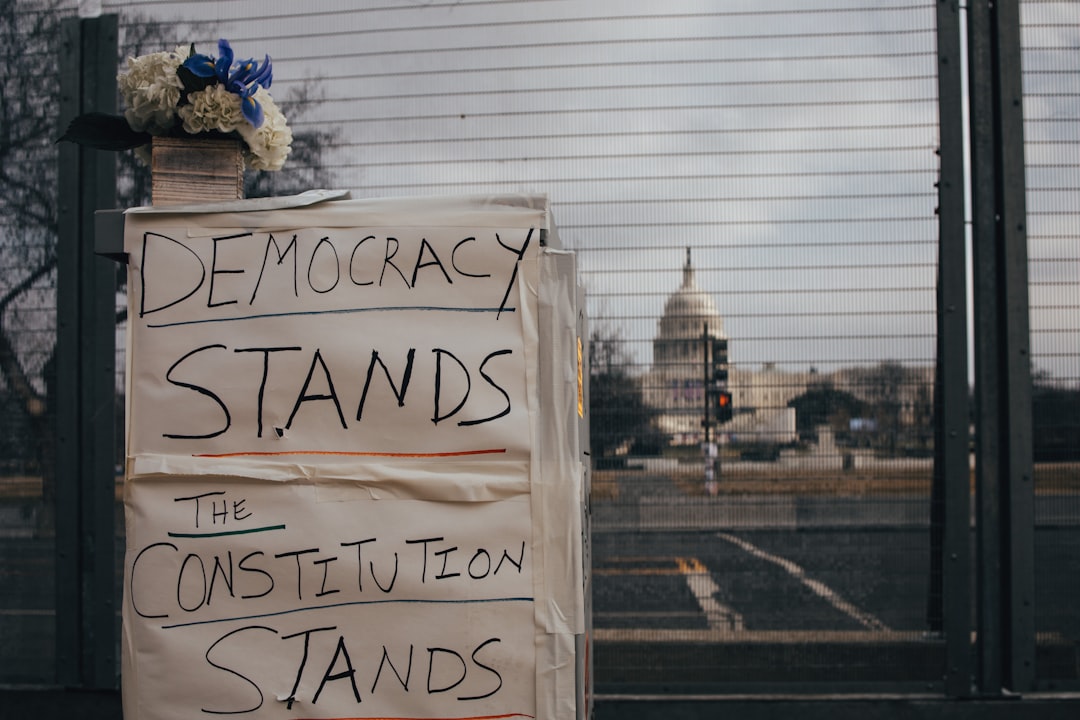Notes on Fascism
These are notes I used when hosting the podcast about fascism

Introduction
In our podcast episode released on November 12, 2023, we delved into the escalating concerns about fascism in America. Our guest, Jojo Stewart, brought a unique perspective to this discussion. Not only is she an activist and a mother, but she also holds the role of Social Media Manager for Randi McCallian's campaign. Randi is a Democratic candidate vying for a congressional seat in Missouri's 8th district.
When conducting interviews, I try to prepare extensively. My method involves spreading numerous reference materials around me. These are then summarized into a script, which I display on my computer screen in front of me. This script mainly consists of a series of topics or questions, each followed by brief paragraphs that enumerate the points I would like to cover. I refer to these paragraphs during the interview to ensure the discussion stays relevant and informative.
Below is the script I used during our discussion. You may find additional nuggets of information in these notes that we were unable to cover during the podcast, due to time constraints.
NOTE: The show notes appear below this section.
Script
What is Fascism?
Fascism is a far-right, authoritarian, and ultra-nationalist ideology and political movement that emphasizes the unity of the nation and of the people, the authority of the leader and the importance of the state. The word "fascism" is derived from the Italian word "fascio", which refers to a bundle of sticks bound together. This symbol was used by Benito Mussolini, the founder of Italian fascism, to represent the strength and unity of the Italian people.
Fascism has its roots in the early 20th century, in Italy, Germany, and other European countries. It emerged in response to the social and economic upheavals of the First World War and the Russian Revolution. Fascist leaders promised to restore national pride, revive the economy, and create a strong, united state.
What Conditions Give Rise to Fascism?
Fascism typically arises in periods of social and economic upheaval, when there is a widespread sense of disillusionment with the existing order. The following conditions are often associated with the rise of fascism:
Economic instability: Economic crises, such as high unemployment and inflation, can create a sense of insecurity and fear among the population.
Political instability: Weak governments and a lack of political trust can also contribute to the rise of fascism.
Social unrest: Social divisions, such as ethnic or religious conflicts, can create an atmosphere of fear and hatred.
Loss of faith in democracy: A decline in public trust in democratic institutions can make people more susceptible to the appeal of authoritarian leaders.
What Conditions Exist Today for Fascism?
There are a number of conditions in America today that could be seen as conducive to the rise of fascism. These include:
Economic inequality: The gap between the rich and the poor has been growing in recent decades, which has led to a sense of resentment among many Americans.
Political polarization: The two major political parties in the United States are increasingly divided, which has made it difficult to address common problems.
Rise of white nationalism: There has been a resurgence of white nationalism in the United States in recent years, which has been accompanied by an increase in hate crimes and violence.
Decline in trust in government: Public trust in government has been declining in recent decades, which has made it more difficult to address the challenges facing the country.
Isn’t Fascism an Overused Term These Days?
The term "fascism" is sometimes used too loosely, to describe any political movement that is seen as being right-wing or authoritarian. It is important to use the term accurately, to avoid trivializing the history of fascism and to understand the real dangers of this ideology.
How to Recognize Fascism?
There are a number of warning signs that can indicate that fascism is on the rise. These include:
The rise of hate speech and violence: An increase in hate speech and violence, particularly against minority groups, is a sign that fascism is taking root.
The suppression of dissent: The suppression of dissent, such as the silencing of journalists and activists, is a sign that a government is becoming authoritarian.
The cult of personality: The cult of personality, in which a single leader is praised and idealized, is a sign of fascism.
What Can We Do About Fascism?
If people recognize these warning signs, they can take action to oppose fascism. This may include:
Speaking out against hate speech and violence: It is important to speak out against hate speech and violence whenever possible.
Supporting organizations that fight for democracy and human rights: There are many organizations that are working to protect democracy and human rights. People can support these organizations by donating money, volunteering their time, or simply spreading awareness of their work.
Voting for candidates who support democratic values: It is important to vote for candidates who believe in democracy and who will protect the rights of all citizens.
Show Notes
Below are some notes taken during the podcast:
Here’s a link to a particularly disturbing FEC document regarding the Trump campaign: https://www.fec.gov/files/legal/murs/7968/7968_14.pdf
The Heritage Foundation published a manifesto, outlining their plan of action, should they re-take the presidency in next year’s election. It’s called “Project 2025,” and it’s worth a read. As I mentioned during the podcast, it’s a horror novel, so beware! Here’s the link: Project2025
Here’s a link to the article I referenced, written by Josh Hawley. It was actually published in 2012, not 2010. You might find it interesting how Josh, now a U.S. Senator, looks at his role in our nation’s government. A Christian Vision for Kingdom Politics: Immanentize the Eschaton!


